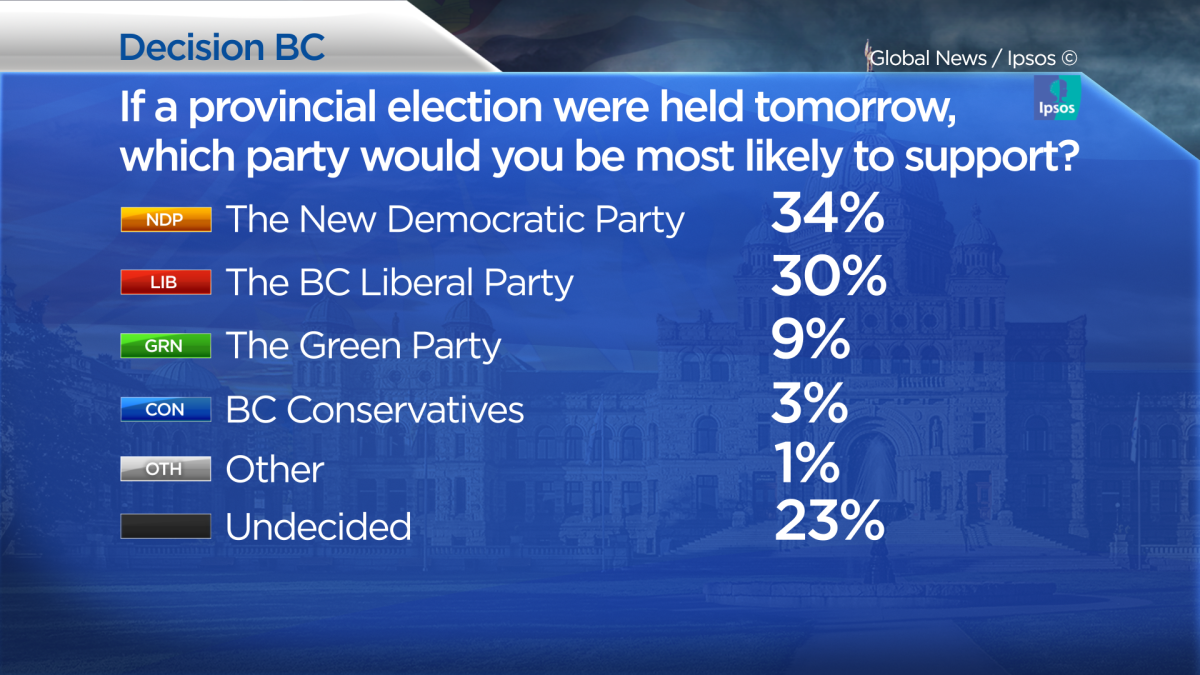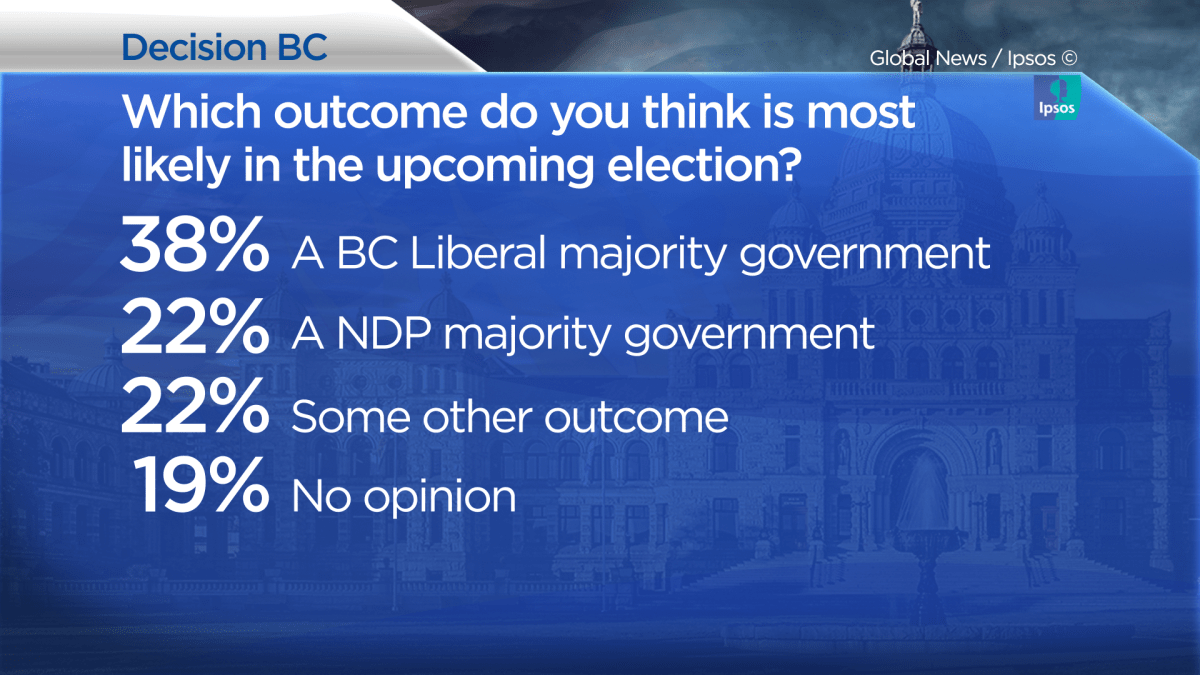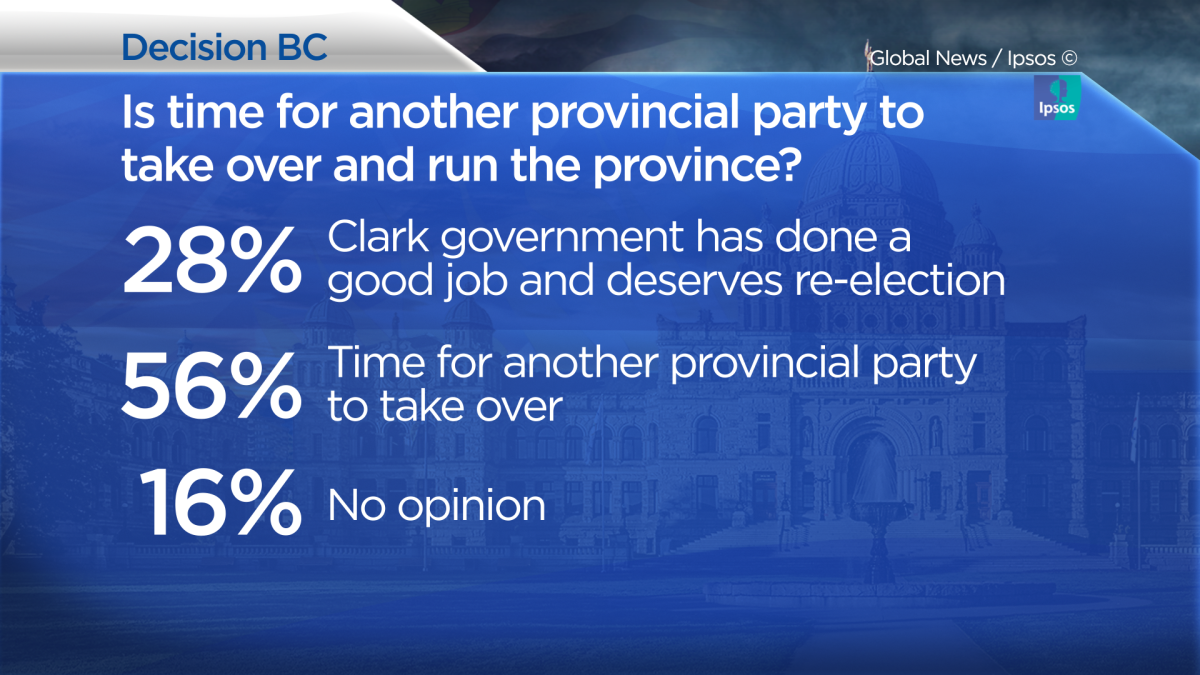As B.C.’s provincial election officially kicks off on Tuesday, a new Ispos poll sheds some light on the issues that matter most to voters and which party leader they feel is best qualified to be B.C.’s next premier.

The survey provided hope for parties trying to unseat the BC Liberals with 56 per cent of respondents saying they felt it was “time for another provincial party to take over.”
Half as many respondents, 28 per cent, said the “Clark government has done a good job and deserves re-election.”
The survey found 44 per cent of decided voters supported the NDP while 39 per cent preferred the Liberals. Nine per cent of supporters favoured the BC Green Party and three per cent wanted the Conservatives to win.
Premier Christy Clark fared slightly better than the BC Liberals as a whole, according to the survey. When asked which party leader would make the best premier, 30 per cent chose Clark compared to 28 per cent who selected NDP leader John Horgan. Eleven per cent preferred BC Green Party leader Andrew Weaver.
“It does not matter what questions we look at in the survey, [the leaders] are all narrowly close,” said Kyle Braid, Senior Vice-President of Ipsos Public Affairs. “Nobody has established themselves as a leader at this point. But at this point, people really only now Christy Clark. I don’t think most people would be able to identity John Horgan or Andrew Weaver out of a line-up. They have an opportunity to grow as competitors.”
READ MORE: Who will win 2017 B.C. election? UBC prof turns to stock market for robust predictions
While the survey suggested the election may be close, many respondents felt the Liberals would eventually come out on top. Thirty-eight per cent said a Liberal majority government will be the most likely result of next month’s election while 22 per cent thought the NDP will win a majority.
The poll also asked respondents what they feel are the most important issues facing the province, and which leader is best qualified to take those issues on.
When asked what issue or issues deserve the greatest attention from provincial leaders, 31 per cent of respondents chose health care.
Twenty-eight per cent of respondents said Horgan was the leader who could do the best job tackling the province’s health care system while 24 per cent preferred Clark.
Twenty-nine per cent said housing affordability was the most important issue in the upcoming election, not surprising given the state of the real estate market in Metro Vancouver and other parts of the province. Thirty per cent thought Horgan was best-suited to take on housing affordability, well ahead of Clark who came in at 18 per cent.
Social issues (17 per cent), education (16 per cent) and jobs and employment (16 per cent) rounded out the five most important issues facing B.C. leaders. Of those five issues, respondents only preferred Clark over Horgan on the issue of jobs and employment.
Exclusive Global News Ipsos polls are protected by copyright. The information and/or data may only be rebroadcast or republished with full and proper credit and attribution to “Global News Ipsos.” This poll was conducted between April 7 and 9, 2017 with a sample of 1,388 British Columbians. The poll was conducted using a blended methodology, including 1,001 online interviews via the Ipsos I-Say Panel and 387 telephone interviews (live interviews, including 40 per cent by cellphone). The precision of Ipsos online polls is measured using a credibility interval. This poll is accurate to within +/ – 3.0 percentage points, 19 times out of 20, had all eligible voters been polled.








Comments